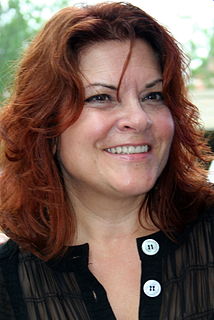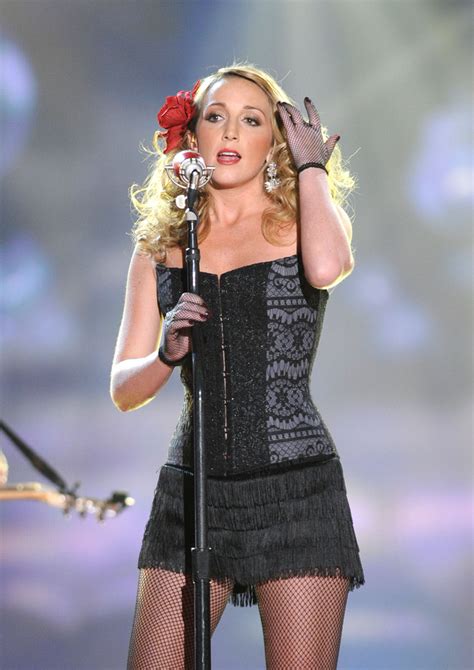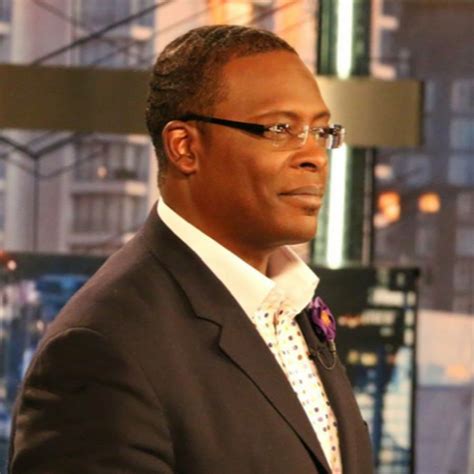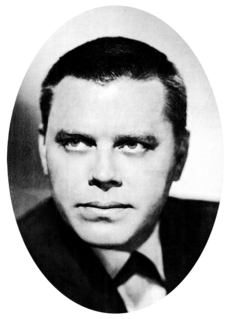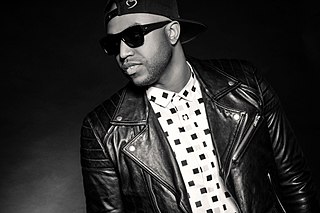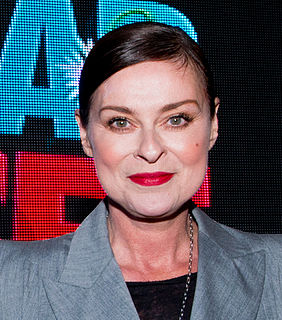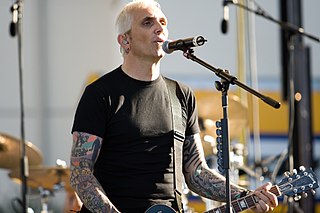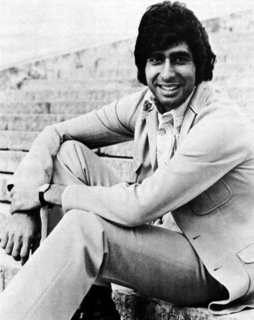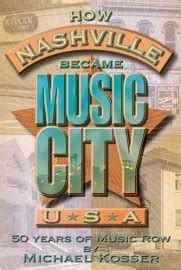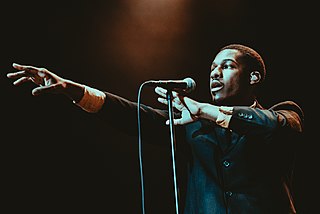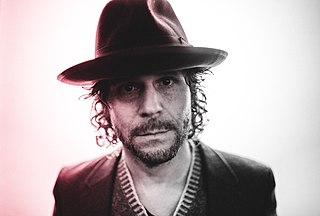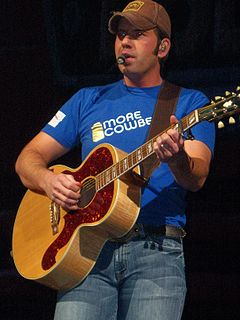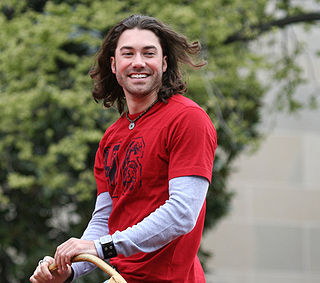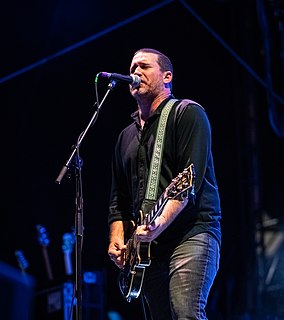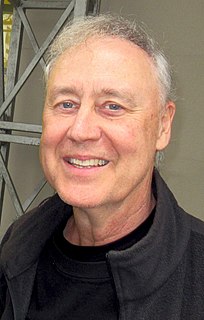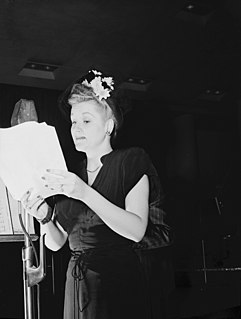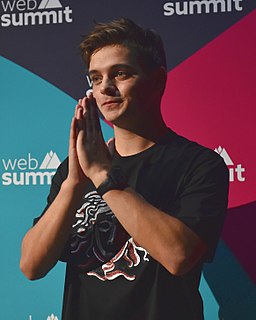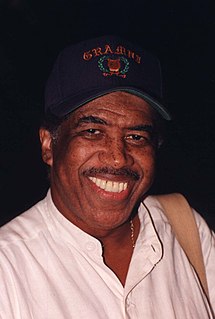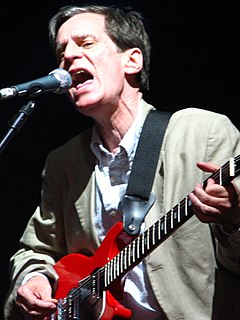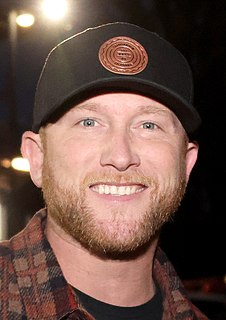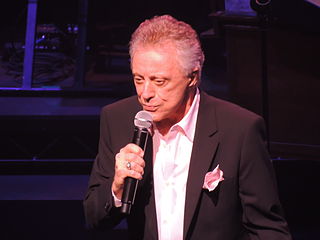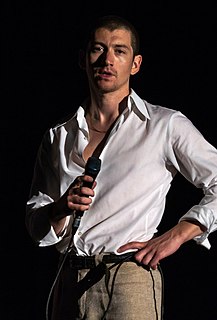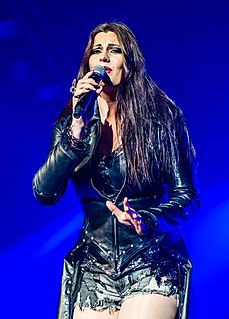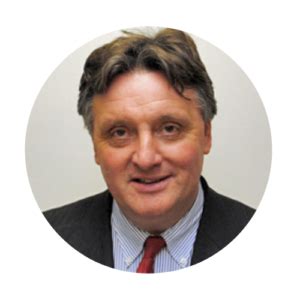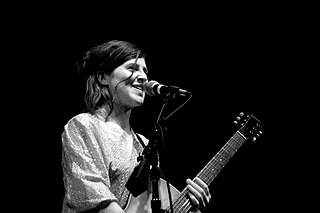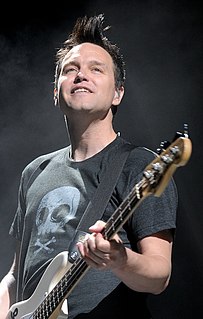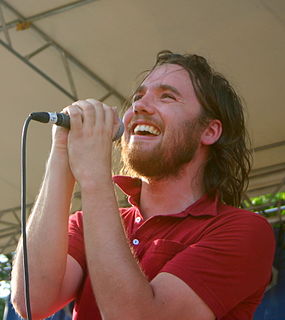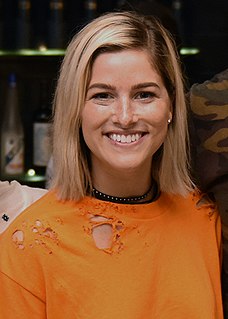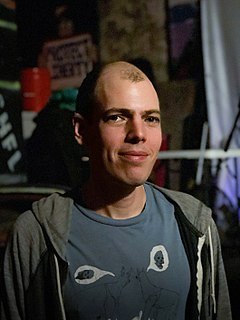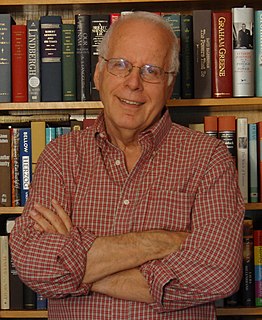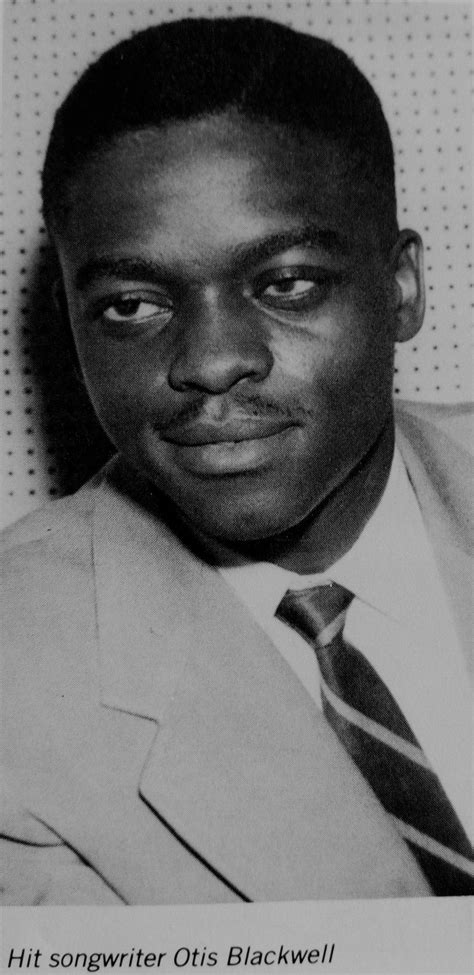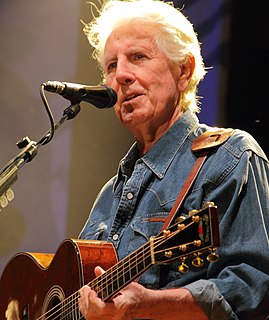Top 369 Songwriters Quotes & Sayings - Page 6
Explore popular Songwriters quotes.
Last updated on December 18, 2024.
Like Thornton Wilder said, time is not a river, but rather a landscape that you step in and out of. I've always found that true of creative work, and I've heard so many songwriters and writers in general say the same thing... When you're going into the realms of your self and trying to tap into the mystery of this creative source, linear time kind of falls away.
As an artist, I always just want to grow as a songwriter. I listen to a lot of music. I listen to music all the time, whether it's hip-hop or soul or rock or whatever. I'm always listening to music and trying to learn from other songwriters and how they tap into certain emotions and communicate more clearly.
I think the nature of songwriters is that they are philosophers, and philosophers have a bent towards poetry and songwriting, so I think that the two run around together. The nature of a songwriter could be philosophical. Looking for universal ideas, a way to say things, get the story across as a means of entertaining, provoking thought.
I don't take off as many days as most other producers and songwriters, so I'm working every single day, and I do songs every day. So it's just about finding time, scheduling, getting in and cutting the records. I make it happen and that's the name of the game. It's no excuses - you gotta figure it out.
I think women were just accepted more as songwriters when they sat on a stool with a guitar and had scruffy hair. It was quite insulting really, because it was like saying that if you're pretty and slim and glamorous there's no way anything could be going on between your ears, you just like doing your makeup.
The interesting thing is that, well, here's what I think about songwriters and songs. Sometimes people sit down and say, "I gotta write a song today, I have a title" and all of that, and sometimes inspiration just happens, almost like "Sugar, Sugar" and a couple of the other songs. But basically, I just started playing the piano, and I'm not a great piano player.
[Non-performing songwriters] climb the mountain the first time, take their successes in stride, and when they tumble down the mountain, they just consider the tumble part of their profession and don't even waste time mourning their slump. They continue to write, make new connections, and move forward toward a new round of success.
I really admire songwriters or any kind of writer, painter or artist that says, "I'm going to get up at 8 o'clock in the morning and spend this time to this time creating." I do that sometimes, but the songs I like the best come as gifts from somewhere. It's almost like you didn't do anything, like you can't take credit for it because you sat down and the melody and words came out.
You wind up creating from silence, like painting a picture on a blank canvas that could bring tears to somebody's eyes. As songwriters, our blank canvas is silence. Then we write a song from an idea that can change somebody's life. Songwriting is the closest thing to magic that we could ever experience. That's why I love songwriting.
I find artists like Tim Barry, Cory Branan, and Jenny Owen Youngs, these current artists that are doing what they're doing now are my idols, my generation's incredible songwriters. I've listened to so much music on the whole ride and I'm inspired by a lot of classic artists, but it's the people right next to me singing songs that are blowing my mind, if that makes any sense.
If you're somebody who writes songs or writes fiction, a writer that people pay for your opinion in any way, you shouldn't be the least bit uncomfortable giving it to them. People want songwriters to tell them how they think and how they feel. That's what a song is. That's what I want to hear in a song.
Songwriters I've always been drawn to are people who deal with something of depth in the lyric writing. ...I've always been influenced by the folk song, the storytelling tradition in folk music. And so for years I wrote mostly story songs. I still do that, but as I've gone on, it's gotten a little more personal. I used to write mostly in the third person. I write a little more in the first person now.
I think that the song, the song "Stand By Me" is one of those songs that... and someone asked me, what was you thinking about or what was you feeling about? It's something that, songwriters just write songs. It's like an artist that paints. They paint what they feel. It's not, it's not about how many of these painting I'll sell it's just how they feel at the moment. And that's how I wrote "Stand By Me".
Probably the art, in that a lot of the people who I want to collaborate with can do something that I can't do. Like with New Bums and Donovan Quinn, he is seriously one of the greatest songwriters in terms of words that is alive right now. So I really wanted to play with him to experience that, to play music with these really great words.
Songwriters always reminded me of that kid at school who would go around with his guitar, like, 'Yeah, songwritin' man,' looking wistful. That wasn't me - those kinds of people put me off. In the early days, I'd write a bunch of lyrics and almost look at them as a sort of joke, to make the rest of the boys laugh.
This world is bullshit. And just because I appear in music video wherein I am in my underwear, and make young women feel not good enough so that they become anorxeic; and okay, maybe because of that I became popular more quickly than other singers who are, I don't know, maybe more talented or better songwriters. That doesn't matter because, and... um... my boyfriend is a magician, and he can pull a quarter out of your ear and say things like 'We have not met before have we?' Go with yourself.
I found that so many people in the music business started out as metalheads in the Eighties - whether they're songwriters, producers, engineers or executives, and no matter what they look like, with short hair, suits or whatever. I feel like my generation of metal kids really tends to populate the music world to a large extent.
Bad facts make bad law, and people who write bad laws are in my opinion more dangerous than songwriters who celebrate sexuality. Freedom of speech, freedom of religious thought, and the right to due process for composers, performers and retailers are imperiled if the PMRC and the major labels consummate this nasty bargain.
Poets and songwriters speak highly of spring as one of the great joys of life in the temperate zone, but in the real world most of spring is disappointing. We looked forward to it too long, and the spring we had in mind in February was warmer and dryer than the actual spring when it finally arrives. We'd expected it to be a whole season, like winter, instead of a handful of separate moments and single afternoons.
America's a funny place. Every time I've come over it just feels absolutely gigantic and massive. I've always had good shows there, but I just go and come back, feeling like another singer/songwriter in a sea of thousands of singer/songwriters. I don't really know what "breaking it in America" is or means. I just focus on touring day-by-day, and show-by-show, and see where it goes.
It takes so many people to make a success story like that. It starts with the song and the songwriters, then Mark Wright's producing, all of the players that played on it, me singing, the marketing department, the promotion department at the label... It takes a lot of people to make a hit like that.
I know that a lot of songwriters write about a break up. It's a really popular topic. I think heartbreak is the number one thing people write about. I could say that's narcissistic somehow because they want everybody to admire how pained they are. But I actually do think there's something beautiful and uplifting about knowing that you're not the only one who is experiencing or has experienced that kind of devastating loss. Everyone's experienced that.
He [Patrick Stump] is been a friend of ours for a long time, and when we were talking about working with different producers and songwriters for the record, Patrick's name came up. We were excited to work with him - he's a very gifted lyricist and songwriter, and a really cool guy and it was a pleasure to work with him in the studio.
I feel like this song [Yello, "Oh Yeah"] was probably done in a couple of minutes in a studio. There was probably no thought behind it; they were just playing with some samples and threw it together. I feel like there's no dream behind the song. Usually there's a dream or some kind of passion attached to a song. This song feels very empty. It made a lot of money for the songwriters but at the expense of culture.
No matter how many people try, no matter how many fancy songwriters in Los Angeles try to break it down to a formula... to an extent, there isn't a science to writing great songs, I suppose. For me, it's always about melody - it doesn't matter what genre of music you're writing, if there's a strong melodic thing somewhere, whether that's in a vocal or in a guitar part or a sample. Something that sticks in your brain, that seems to be something that works.
What inspires me is anxiety and the quest to try to change things in my life. ...I got addicted to endings and beginnings and to the idea of always moving around. ...Obviously, whenever you're going through something that's the best time to create, if you're going through something amazing, or horrible, or nothing at all you should be creating. Unfortunately the songwriters of today generally torture themselves to make sure they're writing good songs and take it a little too seriously.
For 'Hey Monday,' there were songs that I co-wrote with songwriters or producers, but our last EP, the whole band did everything together. I've had a lot of experience with co-writes, which is basically what I'm doing now. I am writing things on my own, but I really believe co-writing makes you a better writer.
When I hear my favorite songwriters write about things they clearly have not experienced, like "Isis" by Bob Dylan or a lot of Bruce Springsteen songs or something like that, I'm always like, "Man, how do I tap into that?" Every time I tried to do something that wasn't autobiographical I felt pretty phony.
Most songwriters who have been lucky enough to have their song on the radio or be heard widely don't know anything about science. The best songs have a strong dose of metaphor. Most songs about science don't have that. Like 'She Blinded Me With Science.' It's a stupid song, no offense to Thomas Dolby.
Songwriting is a craft. Writing good songs on a a consistent basis doesn not happen spontaneously. In fact, most of our best songwriters learned to write good songs by writing a lot of not so good ones. Education matters in songwriting, just as it matters for physicists, chemists, doctors, lawyers and MBAs. Education lays the foundataion on which to build experience.
I was sixteen, I became a working guitar player gigging in LA, mostly in top 40 bands, then touring. I learned to take songs apart, down to their bones. Songwriters would hire me to produce their demos, which lead me to become a songwriter. The relationship and power music has to TV and film attracted me to composing [and] I learned to write for instruments other than guitar.
I don't think I ever wrote a song. I can write a lot of jokes, but when I try to write lyrics they're the most direct, non-figurative words, like, 'I like you, I like you,'... and that's it, for the whole song. People would go, 'Ooh, this guy's Dylan or something.' It gives me a lot more respect for songwriters, actually.
When I first was trying to play the clubs around Houston to start playing my own songs, songwriters like Eric Taylor and Vince Bell and Townes Van Zandt and Don Sanders were just really encouraging to me and would let me sit in with them during their sets and introduce me to the person that owned and booked the club.
In the beginning I had a lot of self-imposed limitations as far as production and instrumentation. It was really inspiring for us at the time, because those limitations allowed us to push ourselves as songwriters and gave us a strong sound that people could recognize as ours, like wearing a leather jacket every day. A uniform. They know it's you - and that's great - but my original intention wasn't to be a shoegaze band or to be derivative of one sound.
I think the genre of musical theatre, when it started, the pop songwriters of the time were writing the music. I think sometimes when we write musicals now, we keep writing in that same style, as though that's the musical theatre genre... We have to figure out how to tell stories with the music that we listen to now, or we'll lose our audience.
Today, I'd like to talk to Bob Marley. I'd just like to ask him what was his method. Bob is one of the greatest songwriters ever. I don't know if people understand how powerful his songs are and the simplicity and genius behind them, from 'Redemption Song' to 'Is This Love?' and 'I Shot the Sheriff.'
When I came home my parents were listening to Pakistani Qawwali music, like Nusrat Fateh Ali Khan, they're listening to music from Mali, like Ali Farka Toure, they're listening to Brazilian songwriters, like Gilberto Gil, to opera, to Neil Young even, things you don't hear as a kid in Caracas. I love all the music they turned me onto.
